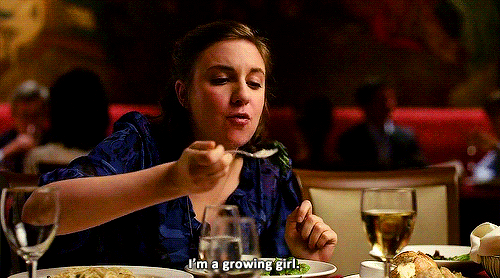Health
Are Obese People Naturally Attracted Towards Food?
“I know not by what power I am drawn to you, but it is as a moth is drawn to the flame, and I cannot fight it, I must be consumed.”
― Andrea Zuvich, His Last Mistress
We know it’s harmless, we know it’s going to kill you (eventually) but we still let ourselves be engulfed by the fire that is food. How many times have you felt that that friend of yours has better will power when it comes to food even though they are perfectly slim and slender? And you on the other hand unleash yourself like a hungry beast at the very sight of food. Well, you’re not alone because a study now supports your train of thought.
The Hungry Truth
The tendency to want food may be ‘hard-wired’ into the brain of overweight people, says a new study that supports the theory that brain mechanisms fueling obesity may be similar to those in substance addiction. Yes, we may be addicted to food!
Though a hot topic of debate, but the fact that whether or not obesity can be called food addiction has not yet been proved completely. “There is very little research which shows whether or not this might be true,” said lead researcher Oren Contreras-Rodriguez from University of Granada in Spain.
“The findings in our study support the idea that the reward processing following food stimuli in obesity is associated with neural changes similar to those found in substance addiction,” Contreras-Rodriguez noted.
Brain Check
The study looked for the functional connectivity differences in brain reward systems of normal-weight and obese individuals.
The researchers gave buffet-style snacks to 39 obese and 42 normal-weight individuals.
Later, they were put into functional MRI brain scanners and shown photographs of the food to stimulate food craving.
The scans displayed that food craving was associated with different brain connectivity, depending on whether the participant was normal-weight or overweight.
Unlike in normal weight people, in obese individuals, the stimulus from food craving was associated with a greater connectivity between the dorsal caudate and the somatosensory cortex, implicated in reward-based habits and the coding of the energetic value of foods, respectively.
But in people of normal weight, the same stimulation prompted more connection between other parts of the brain instead.
“The findings in our study support the idea that the reward processing following food stimuli in obesity is associated with neural changes similar to those found in substance addiction.
The Aftermath
The researchers then measured body mass index (BMI) three months afterwards and found that 11 percent of the weight gain in the obese individuals could be predicted by the presence of the increased connectivity between these two areas of the brain.
“These findings provide potential brain biomarkers which we can use to help manage obesity.”
The results were presented at the European College of Neuropsychopharmacology’s (whoa, huge word!) annual meeting in Amsterdam, the Netherlands.
So basically, whenever someone asks us to put down the nth slice of cake we should just ask them to talk to our brain! Hey we don’t control that cortex ish!

























